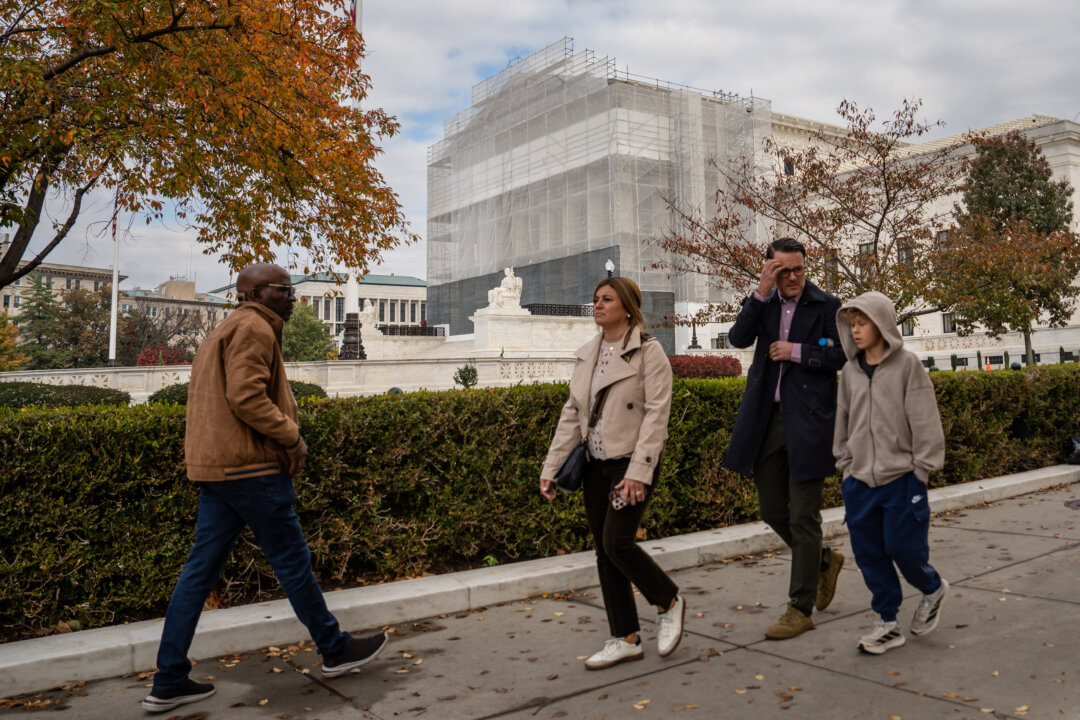SACRAMENTO, Calif. — Winning can paper over a lot of problems.
And on Tuesday, an election that seemed poised to illuminate the Democratic Party’s fractures instead turned into a rout of the Republican Party, an unambiguously brutal referendum on Donald Trump’s first year back in power. For the first time since Joe Biden stepped onto that fateful debate stage 15 months ago, the main currents of the country’s political debate shifted away from the Democrats’ woes.
This was not just an off-year election. It was a circuit-breaker that finally ended 2024, the party’s annus horribilis.
“What a night for the Democratic Party,” Gov. Gavin Newsom declared after his redistricting ballot measure was called so quickly that some California voters were still waiting in line to vote for the measure. “A party that is in its ascendancy, a party that is on its toes, no longer on its heels.”
It wasn’t just that Democrats won every closely-watched election — it’s that their victories were so sweeping. An expected victory in the Virginia governor’s race became a 15-point landslide, a gubernatorial race thought to be closer in New Jersey became a 13-point thrashing of its own and that referendum to redraw California’s House lines to add more Democratic seats was winning by nearly 30 points.
On it went down the ballot. Virginia Democrats didn’t just add to their paper-thin state house majority, they won 64 seats in a 100-person body. Even in more politically hostile territory, Democrats claimed wins, notably winning a pair of statewide elections in Georgia, where the party has struggled for two decades in non-federal races.
If the message was in the margins, there was no mystery in the why. Voters are, again, unhappy with the political status quo and, again, fault a White House they see as unfocused on their priorities. And Trump isn’t just failing to address the cost of living — many voters see him as abusing his power.
Four years ago, voters offered an early rebuke of Biden by electing a GOP Virginia governor, and a Democratic congresswoman from the state spoke for many in her party by telling a reporter the following day that “nobody elected him to be FDR.” The White House and Democratic Congress got the message and swiftly passed the stalled infrastructure bill out of the House, a recognition that the party needed tangible accomplishments rather than every inch of Biden’s ambitious agenda.
Yet even with that same outspoken Virginia Democrat, Abigail Spanberger, winning the governorship in convincing fashion, it’s unlikely today’s Republicans will apply the same pressure on their White House. They fear Trump, and few dare publicly rebut the preposterous idea pushed by some of the president’s apologists Tuesday that the party’s problems can be solved by nominating only full-throated MAGA adherents. (Democrats in purple and blue America would love nothing more.)
The better test may be whether Republican lawmakers, in Washington and state capitals, mount a quiet protest and shelve Trump’s demands that they redraw their House boundaries before next year’s midterm elections. It was swallowed by Tuesday’s electoral results, but earlier in the day, Kansas Republicans decided to forgo a special session to eliminate their state’s sole Democratic-held district.
Will other red states, their GOP House members suddenly staring down the prospect of a harsh midterm, really want to infuse some of their Republican-held districts with tens of thousands of new liberal voters for the sake of dumping one or two House Democrats?

And the deeper problem Republicans have is that Trump is a one-man turnout machine for Democrats. There’s no such similar force for Republicans when the president isn’t on the ballot, and every election for a decade that’s about Trump (rather than the Democrats) has turned out poorly for the GOP.
Oh, and the party possesses almost no ability to change his behavior. Neither Trump’s staff nor Republican lawmakers will force him to be, or even try to be, more interested in selling the so-called Big Beautiful Bill than in overseeing White House renovation projects.
Instead, the GOP will turn to what has delivered them more success in the Trump era, which is making Democrats and their excesses the focal point (and, I fear, abetting the president as he tries to use any means necessary to keep control of Congress).
Tuesday brought a vivid reminder about the breadth of a party bound by its opposition to Trump, a spooks-to-socialists coalition that can differ on style and policy. Moderates could point to the success of two middle-aged, suburban women who rose to Congress in the 2018 Trump backlash and will now become governors — Virginia’s Spanberger, the former CIA agent, and New Jersey’s Mikie Sherrill, the former Navy helicopter pilot. And progressives could trumpet Zohran Mamdani, the youthful Muslim and democratic socialist who was elected New York mayor. It’s worth noting that, beyond their differences, this group of winners was united by not only their anti-Trump voters but also their messaging on affordability.
Newsom, embracing his role as a leader of the opposition and would-be party unifier, told me Monday that “the larger tent narrative should be the narrative tomorrow night, the broadening of the Democratic coalition.”
But the rush of unity from shared success will be hard to sustain, particularly with Republicans attempting to make Mamdani the face of the Democratic Party and other Democrats resenting his attention.
Even before taking the stage Tuesday and opening with, “tonight, we sent a message,” Spanberger was doing nothing to betray her frustration about all the attention the New York mayoral race was drawing.
In an interview on her campaign bus late last month, she asked: “Why is who wins in a city a bigger story than flipping a gubernatorial in a big, broad state or, you know, as I intend to see in New Jersey, moving the margins and securing a state?”
Virginia and New Jersey, Spanberger argued, should define this election.
“The example that one should perhaps look to doesn't come from an incredibly Democratic blue city, it comes from a purple state and a state that is historically blue, but had some shifting,” she said.
Spanberger’s soon-to-be-fellow governor, New York’s Kathy Hochul, may have had similar feelings after listening to Mamdani’s fiery victory speech Tuesday, an address that was heavier on transformational change of the Eugene Debs sort than deal-making of the Albany sort.
Those fissures, however, are for later.
For now, Democrats were happily reminded that there’s no tonic for a demoralized party like success.
There is, longtime Rep. Doris Matsui (D-Calif) told me Tuesday night, “excitement” again in Democratic ranks.
Matsui said she was thrilled to see the voters waiting in line just to cast a ballot on a redistricting measure — and to remain in line even after the polls closed at 8 p.m. and the win was called. “It’s a good sign,” she said.
And when was the last time she felt this positive about her party?
“It's been a while,” she said.
.png)















 English (US)
English (US)